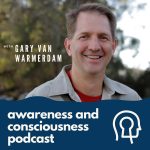
Trauma events can produce symptoms of anxiety, anger, suicidal thoughts, ADHD, panic attacks, or harsh self-judgments, and freeze responses. Trauma is often experienced by people who later become alcoholics and drug-addicted.
Trauma isn’t just experienced by soldiers in combat that develops PTSD. These same PTSD symptoms are the result of an alcoholic parent, a car accident, surgery, abusive relationship, sexual assault, abuse, or bullying. You don’t even need to experience them directly. When you watch someone get bullied or suffer a traumatic event your brain is cataloging that experience in a way that can bring up fears later. It is calculating that this might happen to you.
Listen to the podcast as I give an overview of trauma symptoms and how a person’s nervous system responds to distort and confuse a person when triggered. I also share some of the better modalities for treatment. The effects of trauma can be undone and your brain and nervous system trained to be self-regulating and calm again.
Follow these 5 steps to get a good foundation and understanding for overcoming trauma issues.
-
- Join the Trauma Resource Group with Anna O’Brien HERE.Once you join, look under “Groups”. It is a free resource.
- Join the Trauma Resource Group with Anna O’Brien HERE.Once you join, look under “Groups”. It is a free resource.
2. Do this Breathing practice regularly : https://pathwaytohappiness.com/blog/podcast/how-to-relax/
I recommend that you work your way up to 15 min twice a day. More of you can. It will take time over weeks or months to reset your nervous system to a relaxed state as default, but it will be worth it.
3. Practice the lessons in the Self Mastery Course located here:
4. Get guidance and understanding from experts with these books and audios.
Waking the Tiger by Peter Levine. He developed Somatic Experiencing which helps people release the memory trapped in the body. It’s a good book to start with so you understand how trauma is created, held, and that it can be healed.
Three o Or get the Audio Book
Complex PTSD: from surviving to thriving by Pete Walker: is written by a therapist that grew up in a trauma environment. He knows from first-hand experience what someone is going through. After reading this book, my client’s response is often a relief to the effect. ” I finally understand why my thoughts and emotions do what they do and why I haven’t been able to control them. Now I know I’m not broken. I’ve just had trauma.
— Or get the Audio Book
The Body Keeps the Score by Bessel van der Kolk is considered the kind of bible. It’s a deeper study of the history of trauma, how it’s been ignored, misdiagnosed, and misunderstood. He outlines how approaches like talk therapy fail, and why. It is backed up by studies he references, but that doesn’t make the information or content boring. He spends the last part of the book describing his experience with multiple approaches that really help heal trauma and their efficacy. If you just want to understand what you need to do personally right now for yourself, then get the two resources above. They will give more immediate help. If you want a larger lay of the land and deeper guidance on what will help and what won’t, then move on to The Body Keeps the Score.
Or get the Audio book version
Another good resource for overcoming trauma issues is The Power of Attachment by Diane Poole Heller
Heller studied extensively with Peter Levine and the Somatic Experiencing work. She combines that background to address insecure attachment issues through nervous system re-training. I think her background and the exercises she applies are very helpful for developmental type trauma.
5. Work with a therapist who specializes in the treatment of trauma.
I recommend someone who is experienced in the treatment of trauma, which means 5 to 10 years of experience. That way they will have seen and heard it all and be relaxed about whatever you show up with. If you find a therapist that is uncomfortable about your trauma history and reacts, winces tightens their facial muscles, then keep looking. It is important that the person you are working with remains calm in all scenarios, as this will help your nervous system reset. They can’t guide you to relaxation unless they know how to get there themselves.
The types of therapy that have been effective that I know of.
-
-
- Internal Family Systems
-
Types of nervous system treatments documented as effective:
-
-
- Somatic Experiencing
- EMDR (Uses various forms of bi-lateral stimulation )
- Emotional Freedom Technique
-
